This Week in History recalls memorable and decisive events and personalities of the past.
12th October 1822 – Pedro I of Brazil is proclaimed the emperor
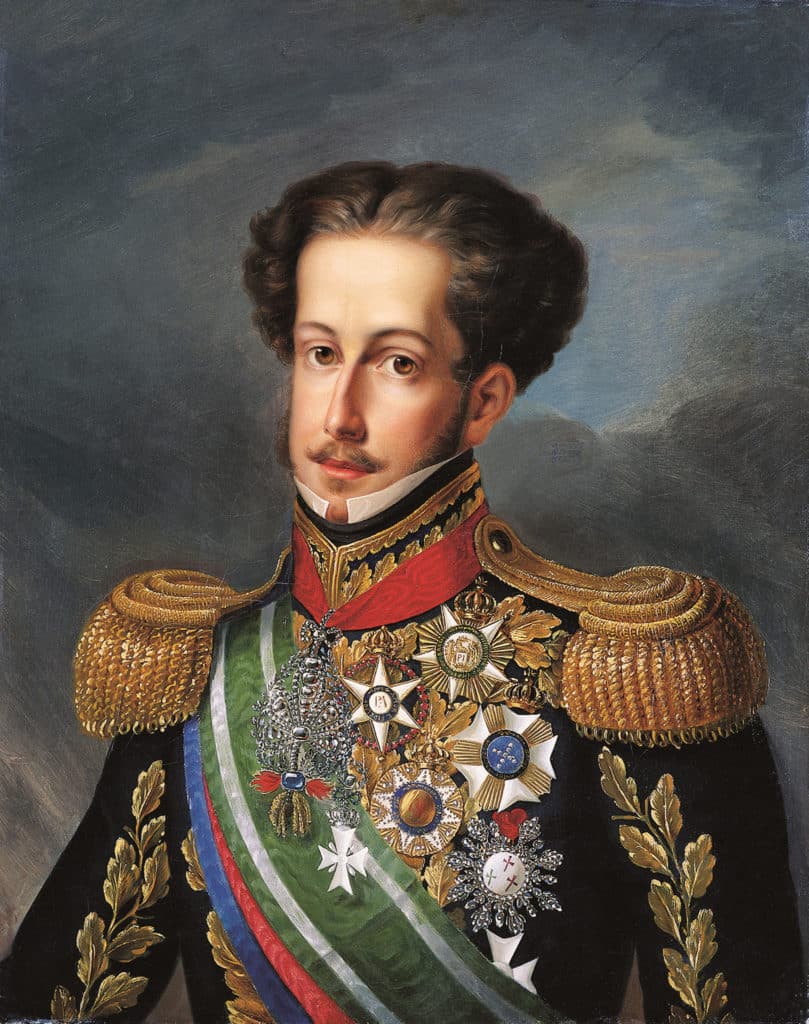
Brazil was originally inhabited by peoples from the Tupi-Guarani language family whose early history is not well documented.
Around the year 1500 the Portuguese kingdom claimed the territory of Brazil as part of the Treaty of Tordesillas, which divided up the world between Spain and Portugal. (You can read more about the treaty in this edition of This Week in History.)
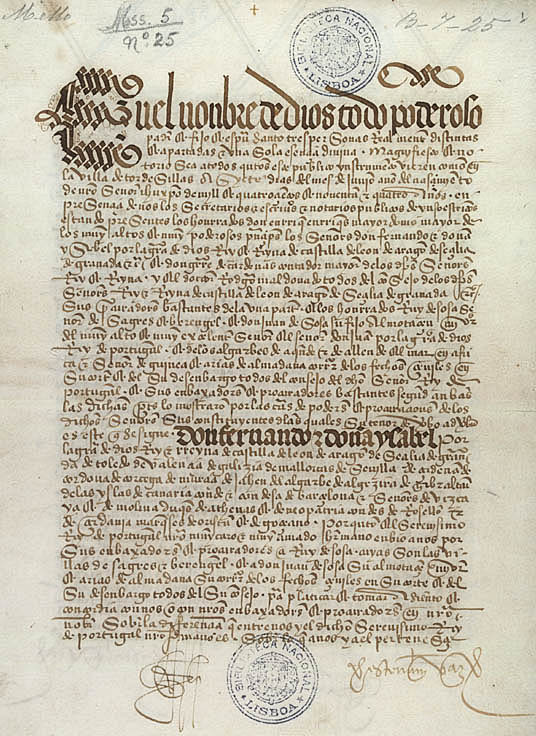
Despite their claims, the Portuguese did not actually establish a settlement in Brazil until 1532.
Soon after, Portuguese settlements were popping up all along the coastline of this massive region. The local Tupi-Guarani peoples were either assimilated into the colonies or killed off by warfare, and diseases which they had little natural immunity to.
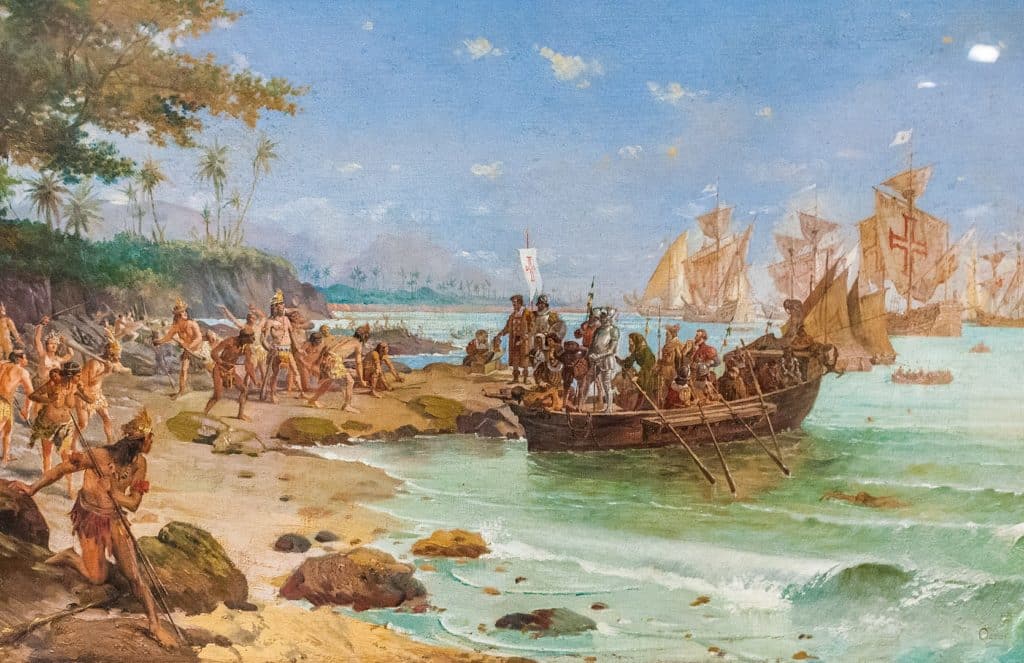
Brazil’s economy would come initially to be focused on sugar plantations. The lack of labourers to work these plantations saw the Portuguese import around a million African slaves into Brazil between the 1550s and 1700. This was a number greater than went to any other colony in the Western Hemisphere.
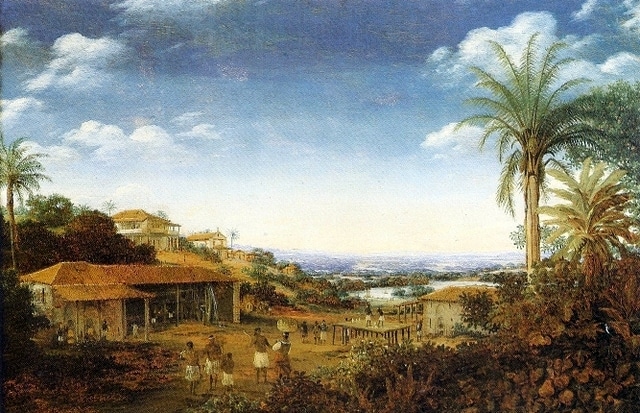
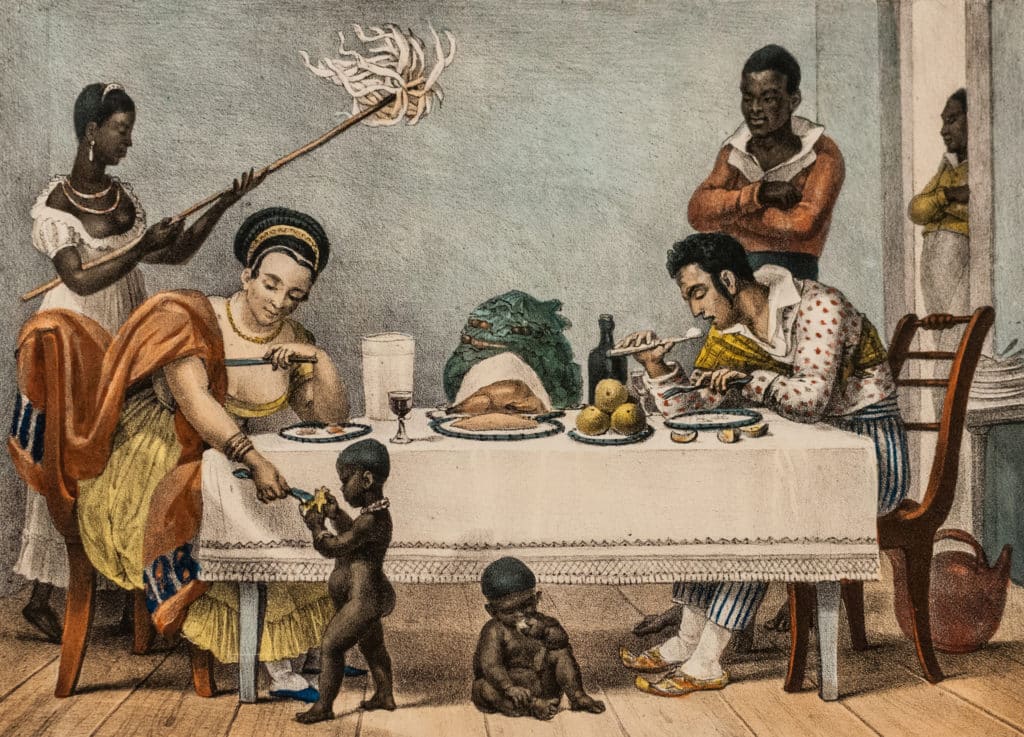
For a time the Portuguese in Brazil competed for control of the region with Dutch, English and French colonists but by the end of the 17th century Portugal had managed to secure the region almost entirely for itself.
The tale of how Brazil became an empire begins in the French Revolution of 1789 and the subsequent rise to power of Napoleon as Emperor of the French Empire.
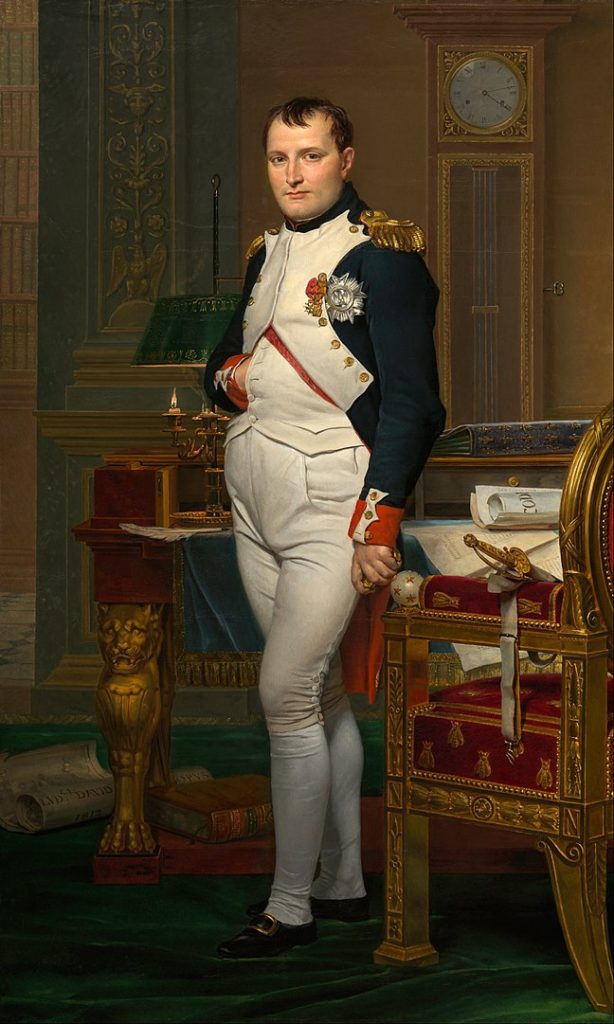
This locked Europe into the Napoleonic Wars, in which France attempted to secure dominance over Europe, with the British Empire constantly seeking to undermine this control through bribes, alliances, and blockades of French allies.
In 1807 Napoleon invaded Portugal, then a British ally.
The Portuguese army could not withstand the massive French force and, fearing the loss of their entire kingdom, the Portuguese royal family fled to their colony of Brazil. The British army did arrive in Portugal to help fight the French and would begin to push the French out of Iberia, but the royal family stayed in Brazil.
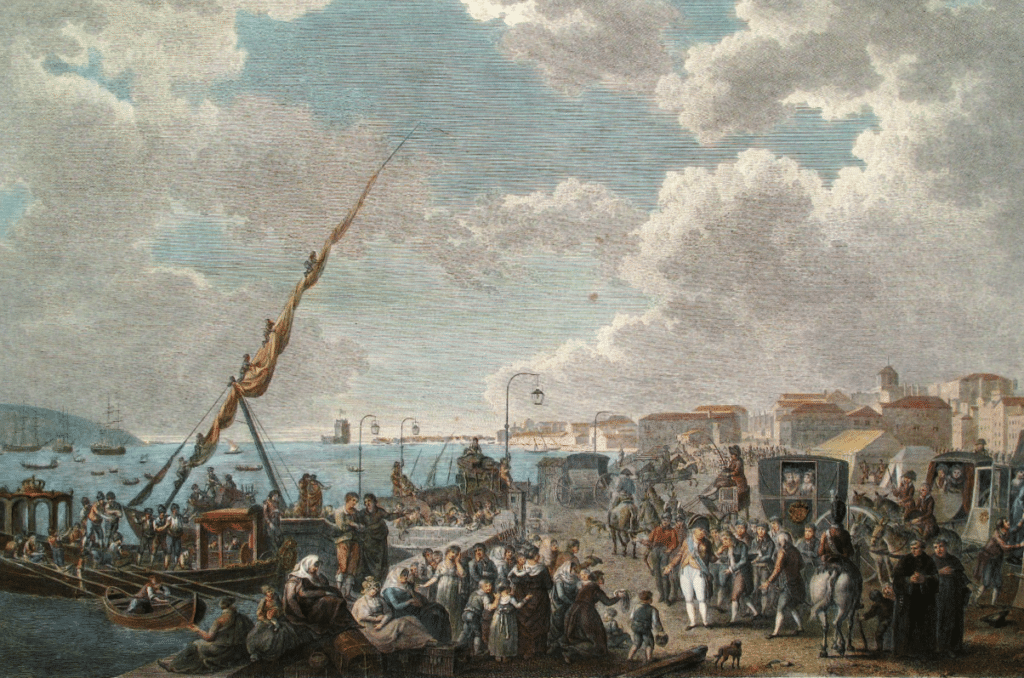
During the period of exile, the Portuguese monarchy established many of the institutions needed to run an independent state, and in turn this began to develop the idea of Brazil as an entity in of itself rather than a simple colony.
In 1815, when the armies of Napoleon were defeated, Brazilians were concerned that they would lose their newfound prominence. Thus, King John VI of Portugal in the hopes of quelling these concerns promoted Brazil to the status of being an equal kingdom within the new United Kingdom of Portugal, Brazil and the Algarves.
In 1820, a revolution broke out in Portugal after a military insurrection in the city of Porto. This revolution sought to create a constitution to limit the king’s power, and also to demote Brazil to the status of a ‘principality’ rather than a coequal kingdom. This would restore Portugal’s trading privileges with Brazil and restrict Brazil’s ability to trade freely. The revolutionaries also demanded the return of the monarch to Portugal.
As a Liberal, the Portuguese Prince Pedro, left as regent in Brazil, was sympathetic with the rebels. However the pro-revolutionary army officers effectively took him prisoner and used him as a puppet to control Brazil.
Over the next two years, relations between Prince Pedro and the constitutional revolutionaries deteriorated. Brazilians also came to be more and more opposed to the new regime in Portugal.
After a demand for Prince Pedro to return to Portugal in January 1822, he decided that he would no longer comply and decided to stay.
Portuguese troops attempted to force him home, but the prince fought back with the help of his royal guards and Brazilian troops. After defeating the Portuguese troops, Pedro travelled Brazil in hopes of winning the support of the Brazilians. In this he was successful and soon almost all of Brazil was behind him.
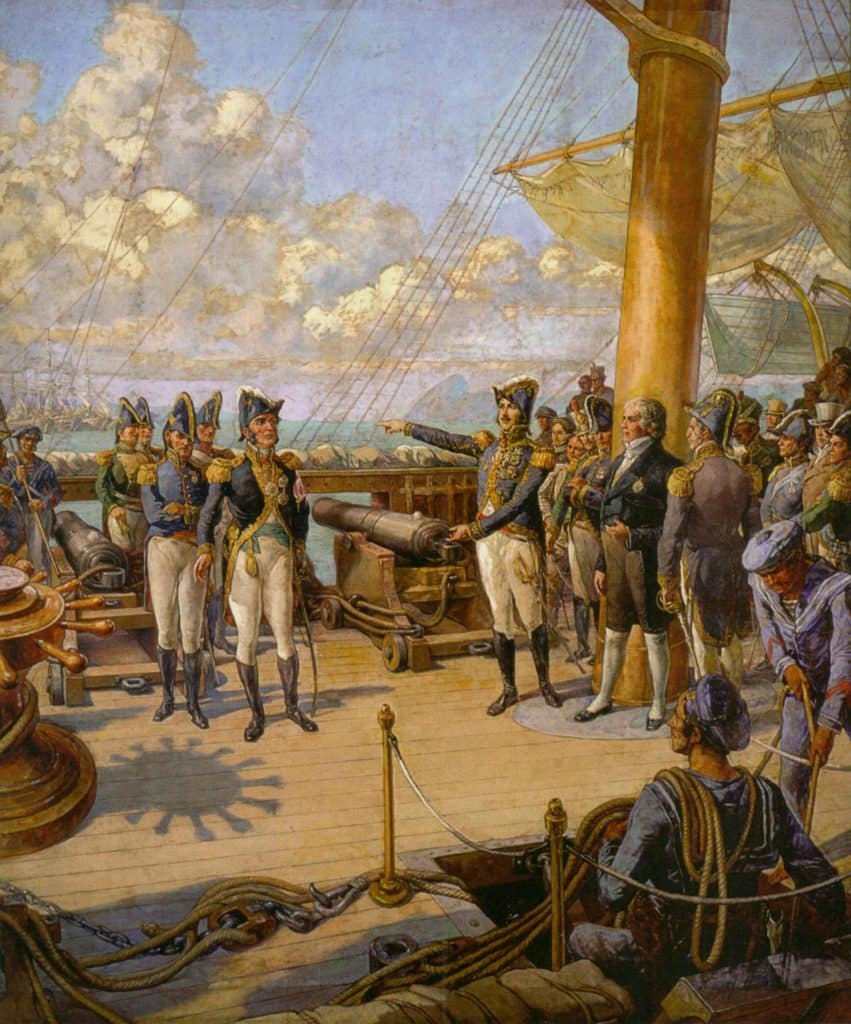
In September 1822, the Portuguese government attempted to strip the prince of all his powers and get him to return to Portugal. He again refused, and he and his Liberal supporters decided that the time had come to declare independence for Brazil. On 2 September 1822 Pedro declared: ‘For my blood, my honor, my God, I swear to give Brazil freedom.’
This was met with huge popular approval across Brazil, with many hailing him not only as King of Brazil, but also as Emperor of Brazil.
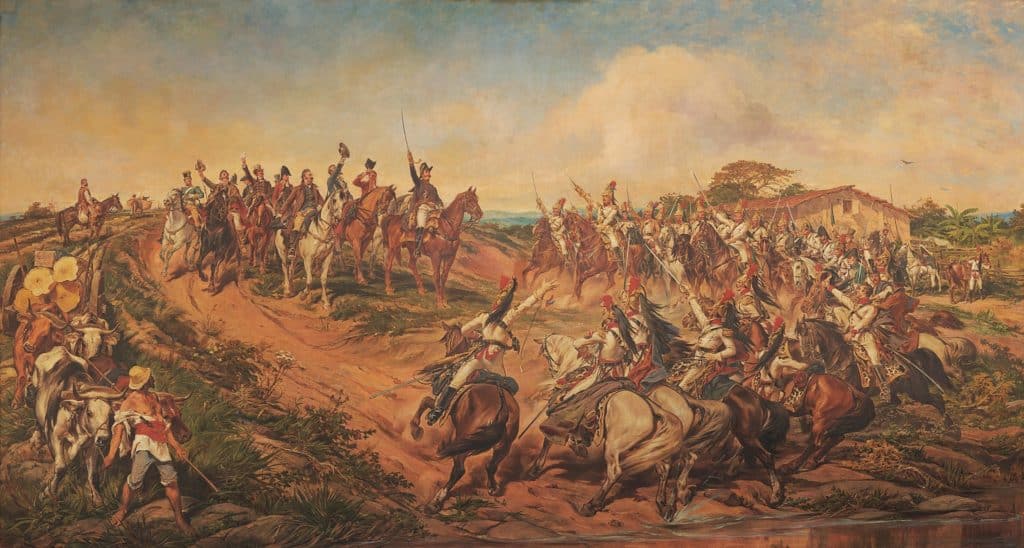
Support for Pedro as a ‘constitutional Emperor’ soon caught fire among his Liberal supporters, as the title of emperor was seen as something that would break the new Brazilian monarchy from the absolutist behaviours of past Portuguese kings.
With this in mind, on 12 October 1822, the government of the newly independent Brazil would declare the former prince, Pedro I, Emperor of Brazil.
If you like what you have just read, support the Daily Friend


